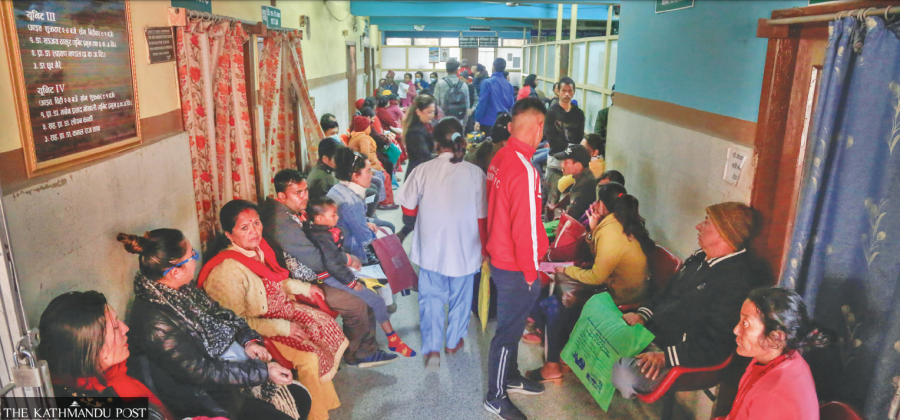Editorial
Ticking time bomb
Intense focus on Covid-19 has led to the neglect of matters related to chronic diseases.
Never has it been more critical to have an efficient health care system than now. As the pandemic raged across the world, many countries were caught off guard by the speed at which the Covid-19 virus completely decimated existing preconceptions regarding a lot of matters and, more importantly, the health care system. Emergency wards were converted into Covid wards as the number of cases rose steadily and were given priority over other non-communicable diseases. This intense focus on Covid-19 has led to the neglect of matters related to chronic diseases such as diabetes, heart disease, cancer and mental illness, to name a few, which are equally important.
As it is, Nepal has an abysmal health system, reliant mainly on the private sector to fill a significant gap that has yet to grab the attention of the government. Although health expenditure by the government as a percentage of the GDP has increased over the years, it amounted to only 5.84 percent in 2018 as per figures released by the World Bank. Without a shred of doubt, this progress will have been severely disrupted by the pandemic, the effect of which will only manifest shortly and will have to be borne for many years to come.
Who could have imagined months of confinement at home? As a result of strict restrictions on movement and socialising, it aggravated a silent killer—mental illness. It’s a topic less talked about in Nepali society; often considered taboo and swiftly swept under the carpet lest it brings about social embarrassment. But facts don’t lie. In 2019, an estimated 6,241 people committed suicide in Nepal, and that number had risen to 7,117 in 2020, an increase of approximately 14 percent. This increase is unwarranted and is essentially a result of the widespread mental health problem in the country. The question now is how do we contain it.
Mental health issues need broader acceptance in our society. There should be a high profile campaign to raise awareness not just from the government but also from all sections of society. Another such study conducted in 2019 on the prevalence of non-communicable diseases by the Nepal Health Research Council concluded that they accounted for an eye-watering 71 percent of the deaths in the country. It is mainly related to changes in lifestyles. The sedentary life we lead and the tobacco and alcohol consumption concoction have aided in such dramatic figures concerning non-communicable diseases.
Non-communicable diseases cannot be ignored anymore, which cause two out of every three deaths in Nepal. While it has been essential to set our focus and resources to contain the pandemic, more should be done regarding other equally life-threatening ailments. The government has to start by providing more resources in terms of money and workforce to deal with the situation so that people languishing in the depths of the economic strata can benefit from it. What we need to do is raise awareness and implement careful management. It is a ticking time bomb waiting to implode.




 9.7°C Kathmandu
9.7°C Kathmandu














